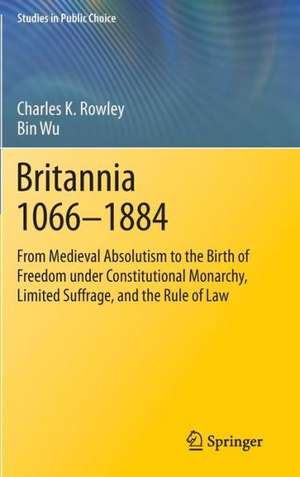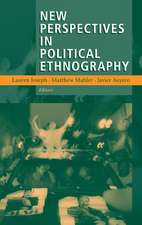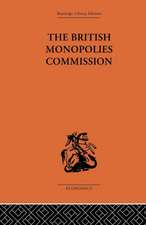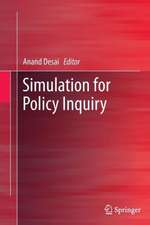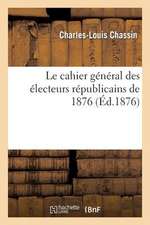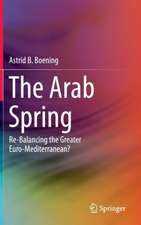Britannia 1066-1884: From Medieval Absolutism to the Birth of Freedom under Constitutional Monarchy, Limited Suffrage, and the Rule of Law: Studies in Public Choice, cartea 30
Autor Charles K. Rowley, Bin Wuen Limba Engleză Hardback – 14 mai 2014
| Toate formatele și edițiile | Preț | Express |
|---|---|---|
| Paperback (1) | 634.68 lei 6-8 săpt. | |
| Springer International Publishing – 3 sep 2016 | 634.68 lei 6-8 săpt. | |
| Hardback (1) | 640.88 lei 6-8 săpt. | |
| Springer International Publishing – 14 mai 2014 | 640.88 lei 6-8 săpt. |
Din seria Studies in Public Choice
-
 Preț: 542.83 lei
Preț: 542.83 lei - 18%
 Preț: 958.38 lei
Preț: 958.38 lei - 20%
 Preț: 579.90 lei
Preț: 579.90 lei - 18%
 Preț: 780.82 lei
Preț: 780.82 lei -
 Preț: 395.09 lei
Preț: 395.09 lei - 5%
 Preț: 370.58 lei
Preț: 370.58 lei -
 Preț: 381.81 lei
Preț: 381.81 lei - 18%
 Preț: 1228.77 lei
Preț: 1228.77 lei - 15%
 Preț: 637.46 lei
Preț: 637.46 lei - 18%
 Preț: 942.63 lei
Preț: 942.63 lei - 15%
 Preț: 640.71 lei
Preț: 640.71 lei - 15%
 Preț: 633.53 lei
Preț: 633.53 lei - 18%
 Preț: 945.62 lei
Preț: 945.62 lei - 20%
 Preț: 560.55 lei
Preț: 560.55 lei - 18%
 Preț: 947.50 lei
Preț: 947.50 lei - 15%
 Preț: 632.37 lei
Preț: 632.37 lei - 15%
 Preț: 635.15 lei
Preț: 635.15 lei - 15%
 Preț: 634.49 lei
Preț: 634.49 lei - 15%
 Preț: 635.01 lei
Preț: 635.01 lei - 15%
 Preț: 638.89 lei
Preț: 638.89 lei -
 Preț: 381.81 lei
Preț: 381.81 lei -
 Preț: 385.62 lei
Preț: 385.62 lei -
 Preț: 393.13 lei
Preț: 393.13 lei - 15%
 Preț: 697.00 lei
Preț: 697.00 lei - 15%
 Preț: 586.70 lei
Preț: 586.70 lei -
 Preț: 389.31 lei
Preț: 389.31 lei - 15%
 Preț: 643.84 lei
Preț: 643.84 lei - 18%
 Preț: 727.00 lei
Preț: 727.00 lei
Preț: 640.88 lei
Preț vechi: 753.97 lei
-15% Nou
Puncte Express: 961
Preț estimativ în valută:
122.66€ • 127.58$ • 102.79£
122.66€ • 127.58$ • 102.79£
Carte tipărită la comandă
Livrare economică 13-27 martie
Preluare comenzi: 021 569.72.76
Specificații
ISBN-13: 9783319046839
ISBN-10: 3319046837
Pagini: 165
Ilustrații: XI, 165 p. 3 illus.
Dimensiuni: 155 x 235 x 17 mm
Greutate: 0.43 kg
Ediția:2014
Editura: Springer International Publishing
Colecția Springer
Seria Studies in Public Choice
Locul publicării:Cham, Switzerland
ISBN-10: 3319046837
Pagini: 165
Ilustrații: XI, 165 p. 3 illus.
Dimensiuni: 155 x 235 x 17 mm
Greutate: 0.43 kg
Ediția:2014
Editura: Springer International Publishing
Colecția Springer
Seria Studies in Public Choice
Locul publicării:Cham, Switzerland
Public țintă
ResearchCuprins
The Modern Tools for Analytical History: Economics,Political Science, Public Choice, Philosophy, and the Law.- The Evolution ofAbsolutism in Medieval England: 1066-1485.- The Tudor Dynasty: PerfectingAbsolutism in the Era of the Renaissance and the Reformation, 1485-1603.- TheStuart and the Cromwell Doom: The Hinge of Fate for Absolutist Autocrats,1603-1688.- The Seventeenth Century Philosophical Divide: Unity versus Liberty.-The Demise of the Divine Right of Kings, the Decline of Monarchic Power, andthe Rise of Parliament, 1689-1775.- Hugo Grotius, John Locke and Cato’sLetters: Evolution of Philosophy from the Glorious Revolution to the AmericanRevolution.- Freedoms Flourish under Constitutional Monarchy, Limited Suffrage, Laissez-Faire Capitalism, FreeTrade, and the Rule of Law, 1776-1884.- The Zenith of Classical LiberalPhilosophy in Britannia: From the Scottish Enlightenment to John Stuart Mill.
Textul de pe ultima copertă
This book offers an analytic history of Britannia (first England and Wales and then Great Britain) over eight hundred years of political turmoil, intermingled with economic stagnation, followed by the engine of the industrial revolution. The book draws on economics, political science, public choice, philosophy and the law to probe in depth into the evolution of Britannia from an impoverished feudal and then post-feudal autocracy into a constitutional monarchy with limited suffrage that provided the fulcrum for industrial and commercial success, making Britannia, by 1884, the richest nation, per capita, on the planet. The book challenges head-on the Whiggist liberal notion of Macaulay and Trevelyan that the path from oppression to freedom was one of unimpeded progress. Among its novel features, the book draws upon the dictator’s handbook, as modeled by Bueno de Mesquita and Alistair Smith to evaluate the period of varying autocracy, 1066-1688. The book draws upon modern public choice theory and legal history to evaluate the fragile, corrupt constitutional monarchy that oversaw the initial phase of post-Glorious Revolution Britannia, 1689-1775. At each stage, the philosophical battle between those who sought order and unity and those who sought individual liberty is meticulously outlined. The book draws on the contributions of the Scottish Enlightenment (Hume, Ferguson and Smith) and of classical liberal philosophy (John Stuart Mill) to explain the final vault of Britannia from a weak and corrupt to a robust and admired constitutional monarchy grounded on the rule of law, over the period 1776-1884.
Caracteristici
Analyses the eight hundred year history of political turmoil in Britannia History of Britannia 1066-1884 application of analytical tools not readily available to historians Focuses on relevant political and economic philosophy and freedom rather than equality as the mainstream of political ferment Includes supplementary material: sn.pub/extras
